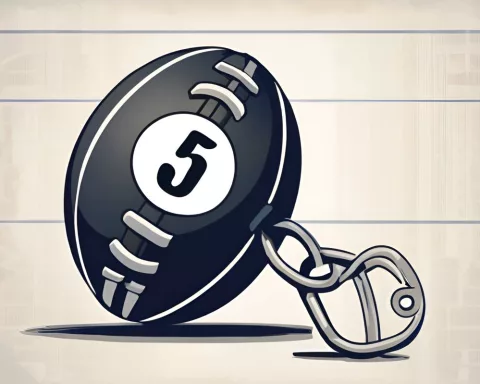Bakkies Botha is a renowned South African rugby player who has expressed his concerns about the present state of the sport. With 85 Test matches under his belt and a reputation as one of the most formidable ‘enforcers’ in rugby history, Botha’s insights offer a valuable perspective on how the game has changed over the years.
Criticisms of the Modern Game
In a recent interview with Midi Olympique, Botha candidly shared his thoughts on the current state of rugby. He admitted that rugby has become increasingly frustrating, inconsistent, and less appealing to audiences. He acknowledged the need for player safety but criticized the constantly changing interpretations of rules by referees, which he believes has led to confusion among spectators.
Loss of Distinctive Personalities
Botha nostalgically recalled the days when he and his fellow players had more distinctive personalities on the field. He fondly remembered being nicknamed an “enforcer” and how it added excitement to the spectacle of professional sports. However, he lamented the loss of such characters in today’s game, attributing the change to the evolution of rugby laws.
Striking a Delicate Balance
The debate over the impact of rule changes on rugby’s essence is not new. Historically, the sport has been synonymous with physicality, intensity, and a certain degree of unpredictability, all elements that have contributed to its global appeal. However, as the game has evolved to prioritize player welfare and minimize the risk of injury, it has undeniably lost some of the characteristics that defined its earlier form.
This dynamic tension between preserving rugby’s rough-and-tumble spirit and adapting to modern safety expectations is a challenge that the sport’s governing bodies and stakeholders continue to grapple with. Botha’s comments reflect the concerns of many rugby enthusiasts, who worry that efforts to mitigate risks may inadvertently strip the game of its distinctive charms.
Ensuring Rugby Remains a Global Spectacle
While the need for player safety is paramount, it is crucial for rugby’s custodians to find ways to maintain the sport’s unique identity. With rule changes and the sport’s evolution, perhaps it is time to explore innovative ways to enhance the game’s entertainment value, while still honoring its historical roots and ensuring players can compete safely on the field.
Bakkies Botha’s reflections on the changing state of rugby highlight the importance of striking a delicate balance between tradition and modernization. As the sport continues to evolve, its fans, players, and administrators must work collaboratively to ensure that rugby remains a thrilling, engaging, and enduring global spectacle.










